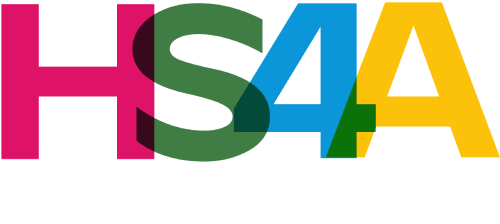How to Think Like an Innovator and Change the World
- By Human Security For All
Unraveling the complex tapestry of obstacles, innovations, and strategies required to reshape our world for the better. A panel discussion at CES 2024, hosted by the Human Security For All (HS4A) campaign, Las Vegas, January 2024.
Panelists included Amandeep Singh Gill, UN Secretary General’s Envoy on Technology; Megan Lee, CEO, Panasonic North America; and Garry Jacobs, President of the World Academy of Art and Science (WAAS).
Garry Jacobs, President of the World Academy of Art and Science (WAAS), moderated the panel and introduced Amandeep Singh Gill, the UN Secretary-General’s Envoy for Technology. Gill explained that technology significantly influences the UN’s mandates in peacekeeping, humanitarian operations, misinformation, and complex geopolitical issues related to the governance of the internet and airspace. Therefore, the UN established a technology envoy to address these challenges and opportunities. The message he had for members of CES and the tech industry is to ensure that technological developments go towards maximizing human security worldwide.
Megan Lee of Panasonic discussed the importance of contributing to society and maintaining a strong relationship with end users for long-term business success, using Panasonic as an example. The company’s founder held a conviction that businesses should exist to serve society, and this value has guided Panasonic for over 100 years, even as technologies have evolved.
According to Gill, the UN provides legitimacy, trust, and the foundation of norms and values, allowing for a purpose-driven discourse among engineers, designers, and young people looking for societal impact. Jacobs highlighted the example of nuclear scientists and their responsibility, and how the emerging technology of AI requires a similar societal awareness and responsibility.
Gill discussed the transformative impact of digital technologies on financial inclusion, particularly in developing countries. Hundreds of millions of people are gaining access to banking, credit, and insurance through digital means, with the digital economy growing rapidly in some emerging economies. This technological transformation is leading to significant poverty reduction and economic growth. Furthermore, he highlighted the potential of clean energy technologies in the context of the United Nations’ 17 sustainable development goals. Technologies such as solar panels, smart grid solutions, and data and AI applications are transforming agriculture, food security, health, the green transition, and disaster prevention. However, he emphasized that this transformation will not happen automatically and requires investment in digital public infrastructure, enhancement of connectivity, and the development of localized and meaningful content for farmers and other users in developing countries.
The panel concluded by highlighting the underinvestment in public technology, education, and institutions as major areas of concern. The speakers mentioned a recent initiative, the interim report of the Global AI Advisory Body, as an attempt to begin a conversation around AI before it’s too late. They stressed the importance of focusing on human needs and welfare as the ultimate purpose of technology and encouraged involvement from various stakeholders, including corporations, research organizations, and governments.

The Human Security For All (HS4A) is a global campaign led by the United Nations Trust Fund for Human Security and the World Academy of Art and Science in partnership with a broad constituent of entities and citizens like you. Our aim is to Promote human security among networks of people who play key roles in adopting new ideas and translating them into action – policymakers, youth leaders, private sector innovators and financiers as well as educators, scientists, artists and more.







